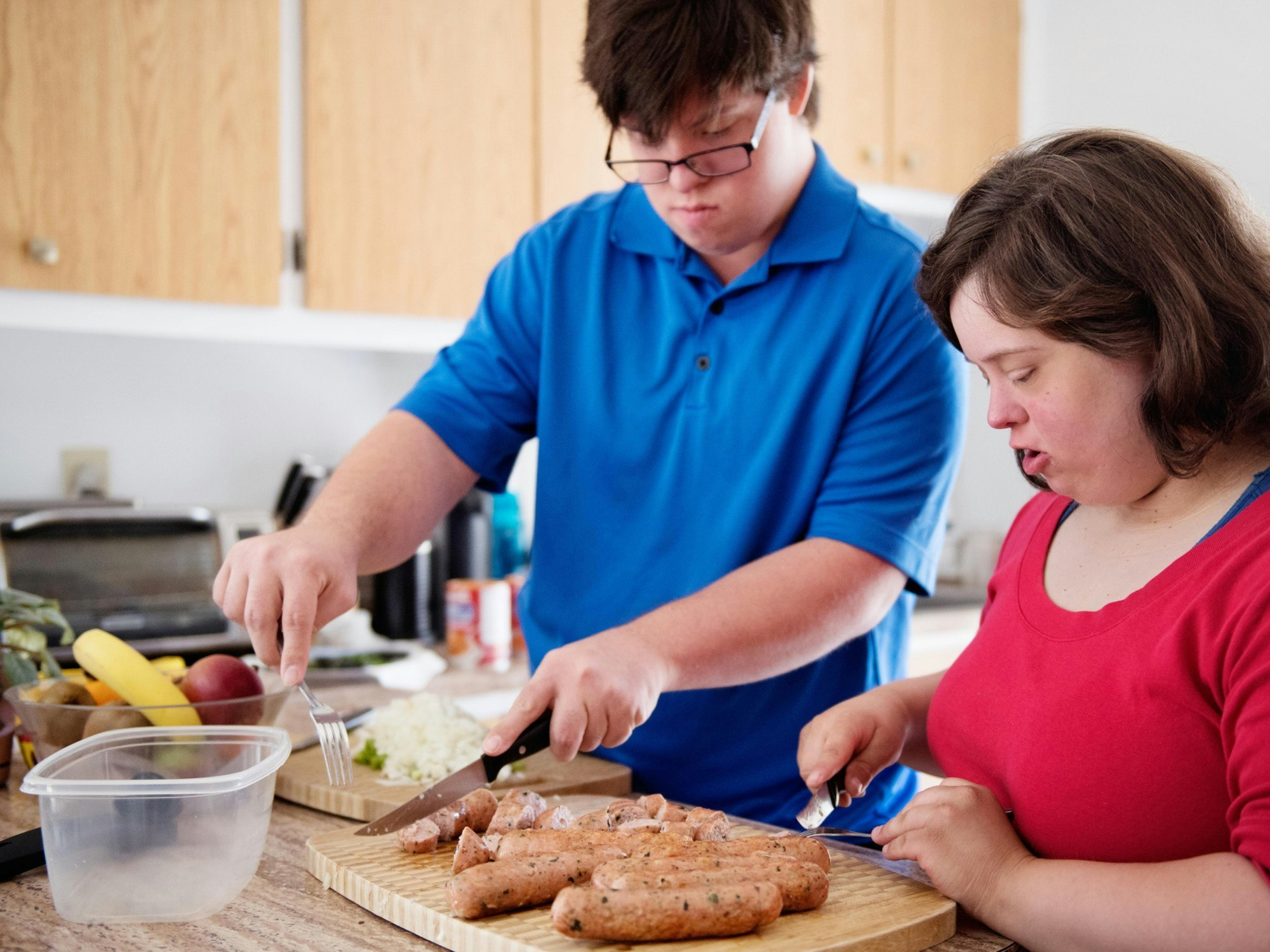Diet and nutrition support through the NDIS
Last updated

A healthy diet is essential for good nutrition, a strong immune system, energy levels and overall wellbeing.
Key points:
- Nutrition supports are available for participants needing help with the way they eat or with understanding the food they need
- NDIS participants can access dietitians or meal planning supports with Core and Capacity Building NDIS funds
- The NDIS will fund disability-related health supports that directly relate to a participant’s significant or permanent disability
According to Dietitians Australia, people living with a disability may have physical, intellectual, sensory or psychiatric impairments that lead to unique food and nutrition needs.
This is additional to general nutritional requirements for growth, development and maintenance, defence against infection, repair of injury, physical activity and mental health.
If you’re finding it difficult to prepare balanced meals, understand nutritional information, develop and maintain healthy eating habits, or navigate eating impairments, you may be eligible for support under the NDIS.
Disability-related health supports under the NDIS
The NDIS will fund ‘disability-related health supports’ if they directly relate to your disability, and would help you go about daily activities. For example, if you have difficulty swallowing properly, a compromised immune system or are unable to prepare your own meals due to your disability you may be able to access supports through the NDIS.
The NDIS will not fund health supports if they are funded by other service systems, like public healthcare.
Assistance with nutrition is included for NDIS participants requiring help with the way they eat or understanding the food they need. These health supports are provided individually and can be provided in a range of environments, including your home.
Does the NDIS cover a dietitian?
In short, yes. You may be able to access dietitians and meal planning services with your NDIS funds if the National Disability Insurance Agency finds the support reasonable and necessary, and directly related to your disability.
NDIS funding is available for dietetic consultations and the development of a nutritional meal plan by an NDIS-funded suitably qualified and competent clinician, such as an accredited practising dietitian.
Dietetic and meal planning services can improve your independence, economic participation, social inclusion and/or general wellbeing.
A dietitian can provide you with expert advice and assistance in areas such as:
- healthy food choices and overall health management;
- weight management;
- eating disorders;
- gut and cardiovascular health;
- bowel issues;
- fussy or selective eating;
- malnutrition and unintentional weight loss;
- personalised meal plans;
- menu planning, shopping and budgeting skills;
- meal preparation skills;
- stressful mealtimes and other mealtime challenges such as food refusal, not coming to the table, eating with distractions or avoidance to eat socially;
- food and nutrition counselling to support behavioural change; and
- non-oral feeding, i.e. tube feeding and tube weaning.
Accessing diet and meal planning support
Regarding the NDIS Price Guide, current as of July 9, 2024, you can access funding for dietitian or meal preparation services under the following support categories:
Capacity Building: Improved health and wellbeing
Dietitian consultation and diet plan development
This support item provides advice to participants on managing diet for health and wellbeing due to the impact of their disability.
Core support: Assistance with daily life
Dietitian consultation and diet plan development
Provision of advice to a participant on managing diet for health and well-being due to the impact of their disability.
Preparation and delivery of meals
This support item is for assistance with the cost of the preparation and delivery of food to participants who are unable to do this for themselves. The cost of the food itself is not covered by the NDIS. This support item is subject to quotation and should only be used if it is a stated item in a NDIS plan.
For more information on disability-related health supports under the NDIS, visit the NDIS website.
Related content:
Tips for healthy eating
Staying fit and active with a disability
Recreation, sport and the NDIS